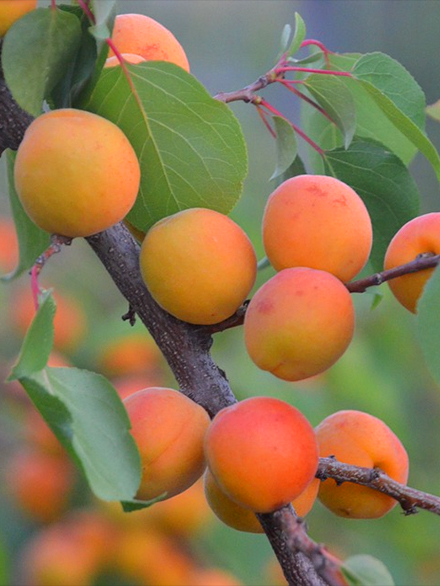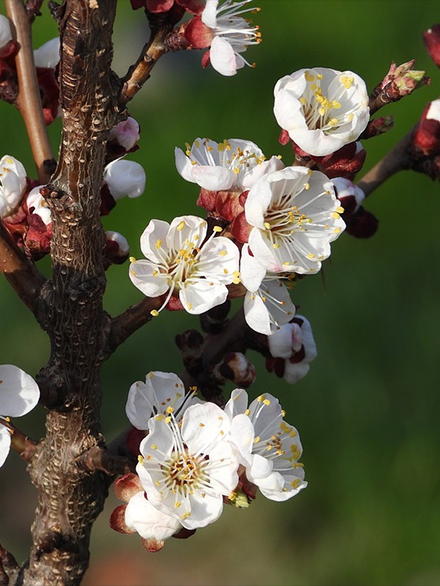
Apricot
Latin name: (Prunus armeniaca)
Family: Rosaceae
Perennial
Planting information:
- Preferred planting methods: Bare rootstock
- Planting times: Fall-Spring, but especially:
- Late September through early November (preferred)
- Late March through May.
- Planting depth: at least as deep as the length of the roots
- How to plant:
- Dig your planting hole about 3 feet wide and mix the backfill with compost in a 1:1 ratio.
- If you are not using bare rootstock, remove the tree from the nursery container, and prune or cut any dead or encircling roots.
- Get the whole area wet, collapsing the sides of your planting hole so that it becomes muddy, then plant your fruit tree, adding in your soil/compost backfill mix.
- Tie your tree to a stake that has been firmly driven into the native soil at the bottom, and protect it with chicken wire or a wire basket with the base removed, allowing the tree to grow through. You can remove this protective barrier after the tree is established.
- Mulch the 3’ diameter planting area about 3"-4” deep with wood or bark mulch.
- Water your tree in thoroughly to remove air pockets, and then water once every week in addition to the regular irrigation for about 2 years until it is established.
- Fertilize your tree about one month after planting.
Part of the plant that is eaten:
Recipes:
Resources:
-
Hansen, N. 2020, Stone Fruits, University of Nevada, Reno, YouTube Channel

#YHEP
Ford-Terry, I.
2020,
Apricot (Prunus armeniaca),
Extension | University of Nevada, Reno | YHEP QR Database


